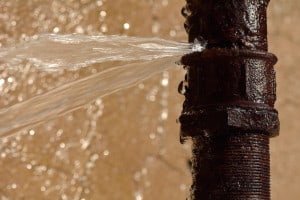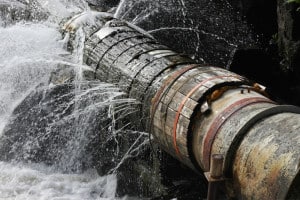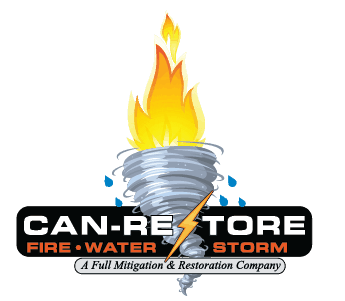Need Water Restoration from Burst Pipes? You’re Not Alone.

Here’s the lowdown on frozen pipes and the possible after-effects that might leave you needing water restoration from burst pipes.
First, Why Do Pipes Freeze?
When you turn off the water, the water goes back where it came from, right? Not exactly. When you turn off the water it doesn’t just run back down the pipes, it stays where it is.
When the weather gets cold and temperatures drop, the water in pipes can freeze. Seems unlikely that you would have frozen pipes in a house that is kept at a comfortable temperature, right? That depends on where the pipe is. When pipes are located on an outside wall or under a sink or in an unheated or uninsulated space, such as a crawl space or cellar, they don’t reach the same temperature as the interior rooms of your home, and they can fall victim to the falling temperatures, and you’ll find yourself needing water restoration from burst pipes.
Why Do Pipes Burst?
As the water in pipes that are exposed to the winter weather gets colder and freezes, it expands due to the change in shape of the water molecules. Water molecules become crystals with a hexagonal shape when they freeze which makes ice molecules take up more room. As it expands, it can push the limits of the pipe itself, putting too much pressure on it and causing it to rupture, burst, or break. This calamity is much more widespread than you might think. It can happen in older homes with less effective insulation, in homes with cold basements and crawl spaces, and when cold weather hits when people go on vacation and lower their thermostats.
Where Does the Water Come From?
So, the pipes are frozen, why is there water everywhere now? When a pipe breaks or bursts because of frozen water inside, there is still water being pushed from behind toward the faucets. When the pressure is released from the broken pipe, that water comes rushing out and into your home.
What Do I Do If My Pipes Burst?

The first thing you need to do if you find water in your home, in the basement or coming from a wall or under a sink, is to turn off the main water valve to your house. This simple action will stop any more water from coming into you home through the pipes and will halt the deluge from the broken pipe.
The next step is to get rid of the water. Calling a professional for water restoration from burst pipes is critical. Proper water extraction, drying, dehumidifying, and cleanup are the key factors in successful cleanup and restoration. Here are some other steps they’ll take to get your home back in order:
• Structural drying and cleaning
• Floor drying and cleaning
• Antimicrobial treatment to prevent bacteria and mold
• Inspection for mold and removal and remediation if necessary
• Sewage cleanup, if needed
• Repair and reconstruction of the affected area
• Restoration of documents, electronics, and furniture
• Air scrubbers and deodorizers
The best advice for dealing with frozen pipes that have burst is to count on the experts to help you get your house back in living condition. Instead of trying to manage it yourself, you can rely on the pros to have an emergency, 24/7 response, and to have the tools, experience, and training to get the job of water restoration from burst pipes done right the first time, so you don’t have to go back and fix it a second time.
If you need water restoration from burst pipes this winter, click or call Can-Restore for help at (770) 735-2695 or by clicking here.

